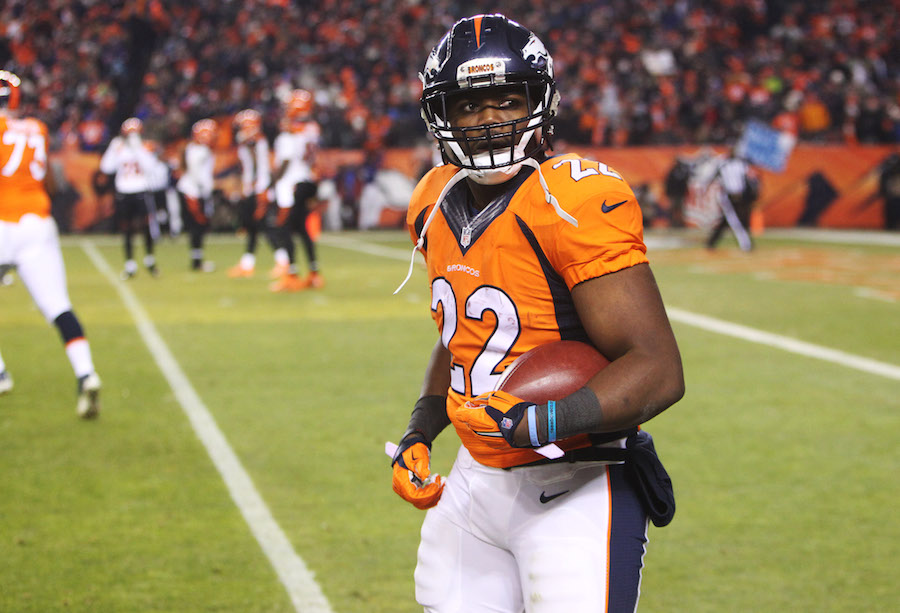Let’s stop talking about the quarterbacks for a second, okay? They’re a given. They’re bad. We get it, we understand it, let’s move on.
If the Denver Broncos are going to be successful this season, it’s going to be because of two things: the defense and the running game.
Luckily, we already know the defense is going to be good, so that leaves the run game as Denver’s most-important question mark. More specifically, that leaves C.J. Anderson as Denver’s most-important question mark.
At times, Anderson has been dominant. In the final six games of the 2014 season, when he became the Broncos’ full-time starter, C.J. rushed for 648 yards (4.63 yards/carry) and eight touchdowns, while adding 18 receptions, 131 yards and another touchdown through the air. Extrapolated for a full 16-game season, he would have rushed for 1,728 yards and 21 touchdowns — an MVP-caliber season.
Now, basing someone’s future performance based off a sample size of just six games is dangerous — *cough Osweiler cough* — and we saw that through the first six weeks of the following season, where C.J. averaged 2.69 yards per carry and scored zero touchdowns.
But, then again, following the Broncos Week 7 bye, C.J. Anderson came back with a vengeance, averaging 6.35 yards per carry (best in the league) during the final nine weeks of the season.
So who is C.J. Anderson?
Is he the top-five running back we saw during the second half of each of the last two seasons? Or is he the out-of-shape, injury-prone back we saw at the beginning of the 2015 season?
It’s an important question, because if the Broncos are going to have any chance of repeating as champions, they’re going to need the first C.J. for a full 16 games, not just the final six.
So, in terms of what that means for fantasy, here’s C.J.’s best- and worst-case scenario:
Best-Case Scenarios:
C.J. Anderson channels the best of his talents, becomes the focal point of the Gary Kubiak offense and puts himself in contention for Offensive Player of the Year.
Is it likely? Probably not. Is it possible? Definitely.
Anderson has shown us that he’s capable of just about anything. And if he becomes a real bell-cow for the Denver Broncos offense, if he’s given upwards of 325 carries, it’s not absurd to think that he’ll finish with 1,500 rushing yards and 10 touchdowns.
Of course, that would be a historically great season for a Bronco running back. Only two running backs have ever reached those numbers in franchise history: Terrell Davis (three times) and Clinton Portis (two times). In fact, a running back has reached those numbers only 12 times in the last decade.
But if you believe — in a run-first, Gary Kubiak offense — that Anderson can be the best running back he can be, it’s within his realm of possibilities.
Worst-Case Scenario
Simple. C.J. Anderson reverts back to the C.J. Anderson we saw early last season; he’s ineffective, gets injured and is quickly surpassed by Devontae Booker.
The Broncos gave C.J. a lot of money this offseason, and they want him to be their No. 1 back, but they also really like Booker, and if Booker begins to outperform Anderson, Denver will be quick to pull the trigger. They showed as much last season when they swapped Anderson out for Ronnie Hillman a month into the season.
